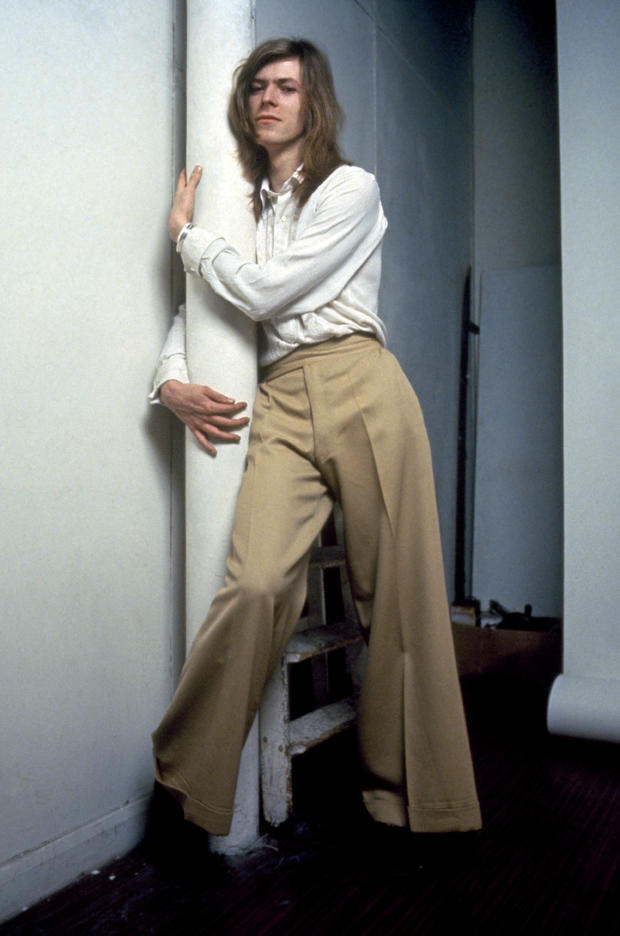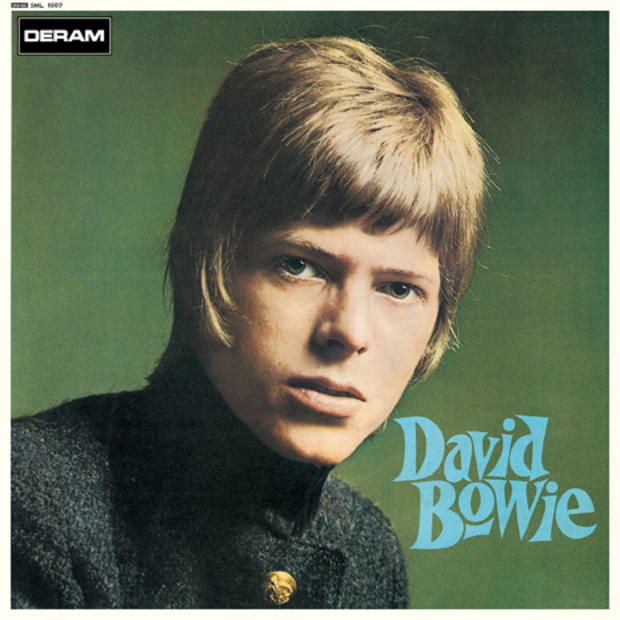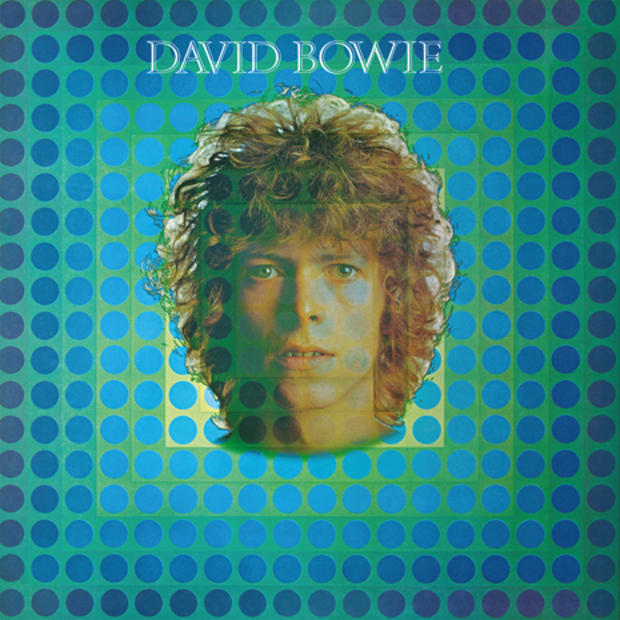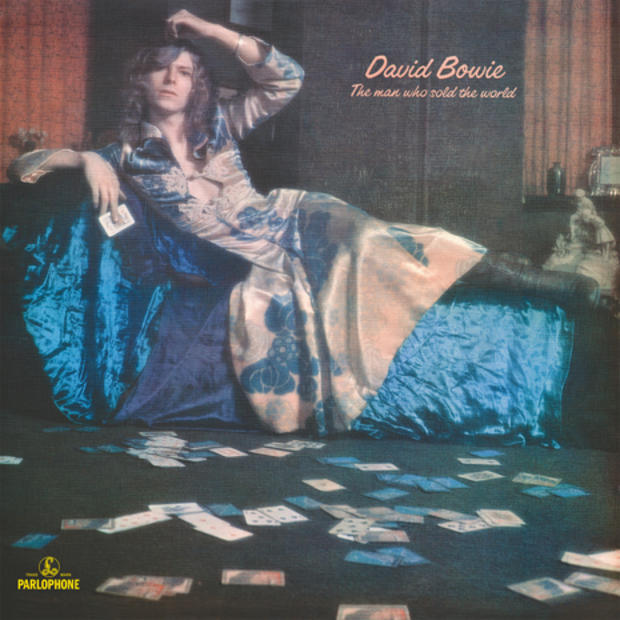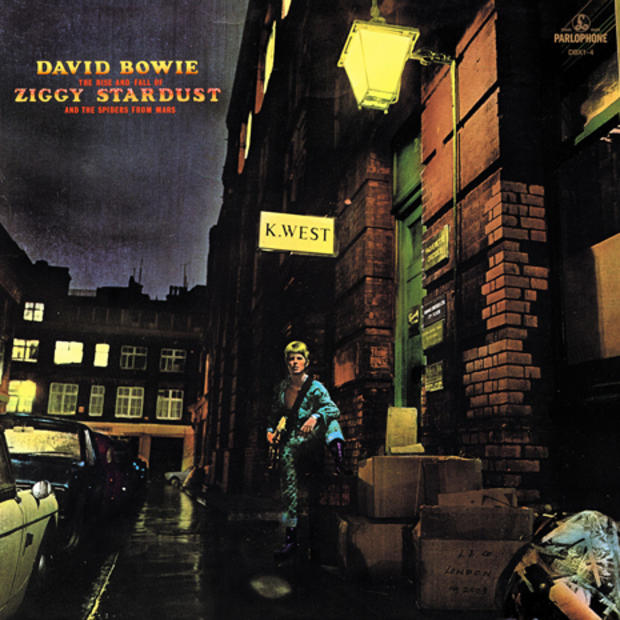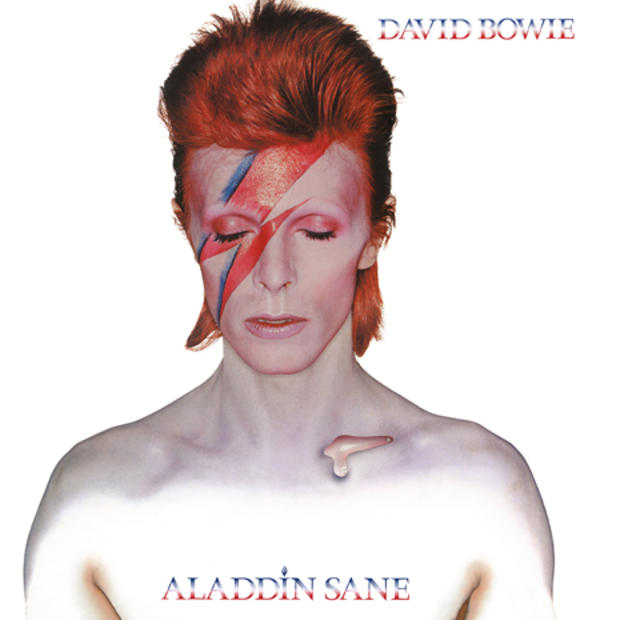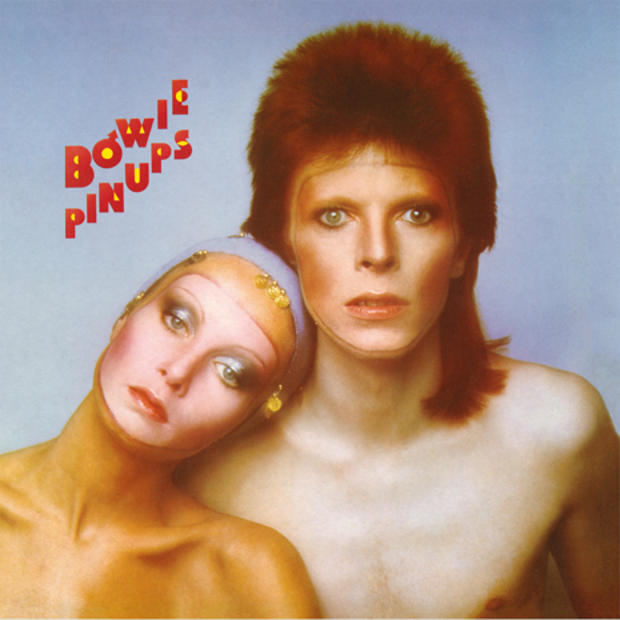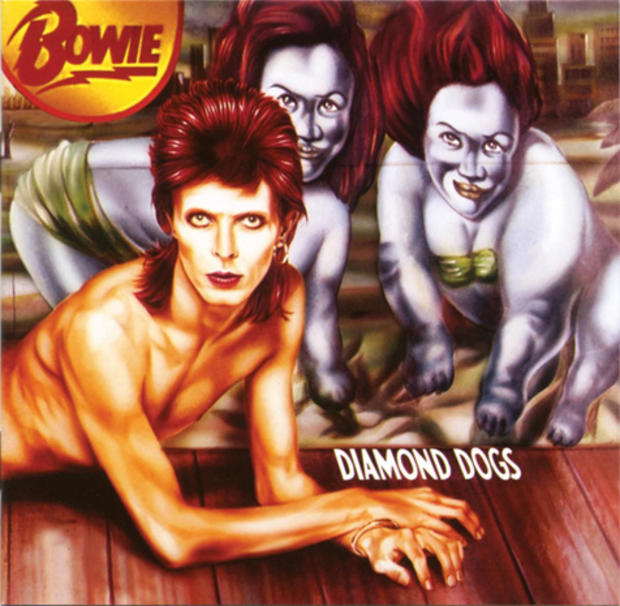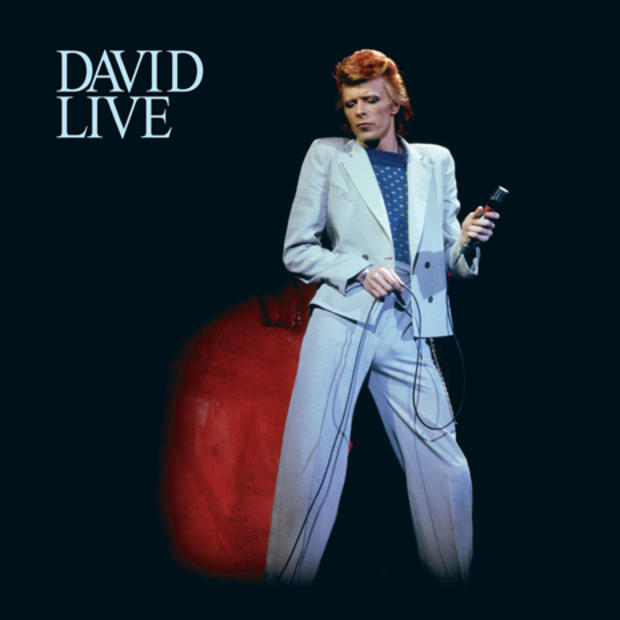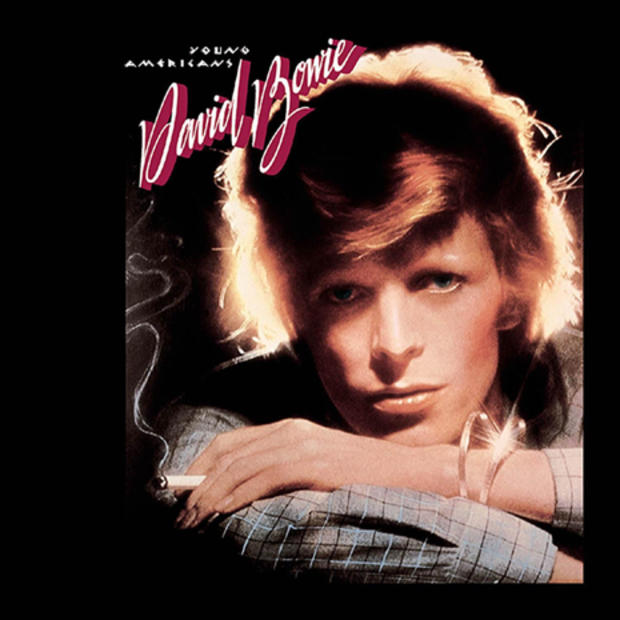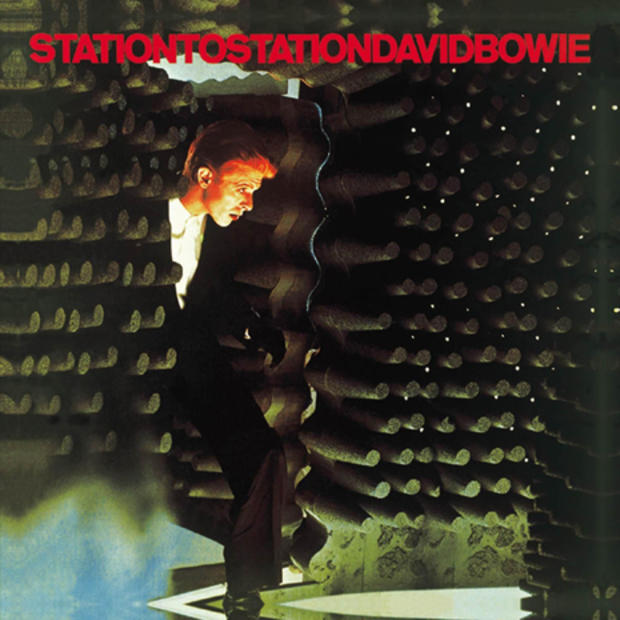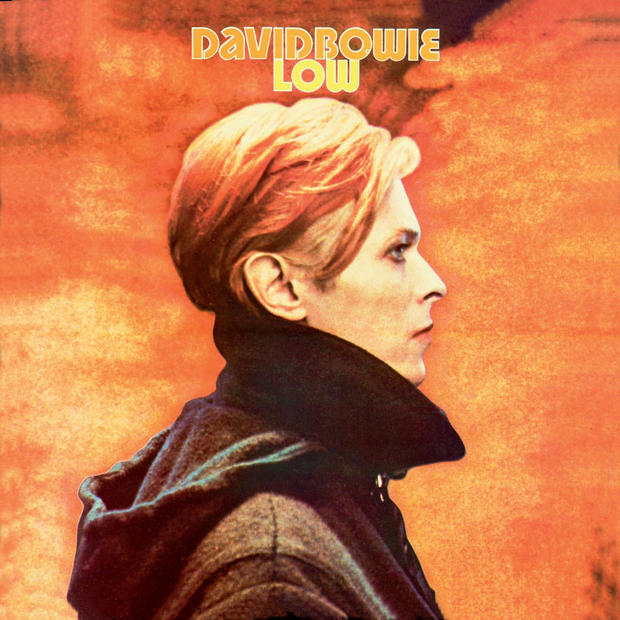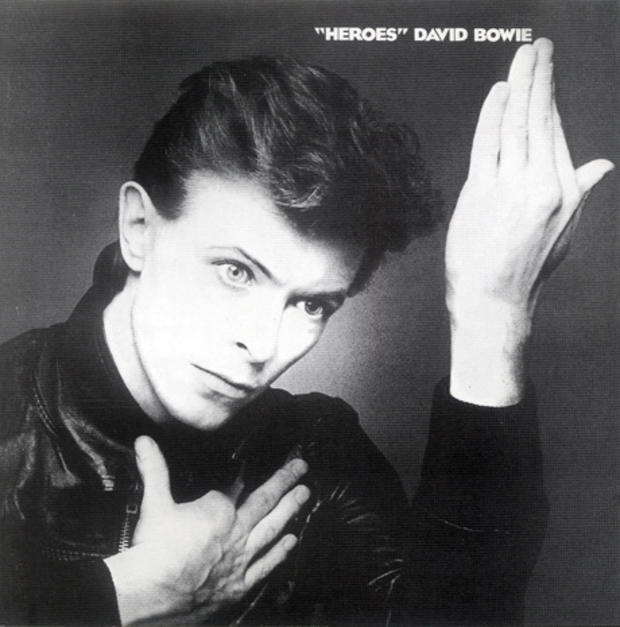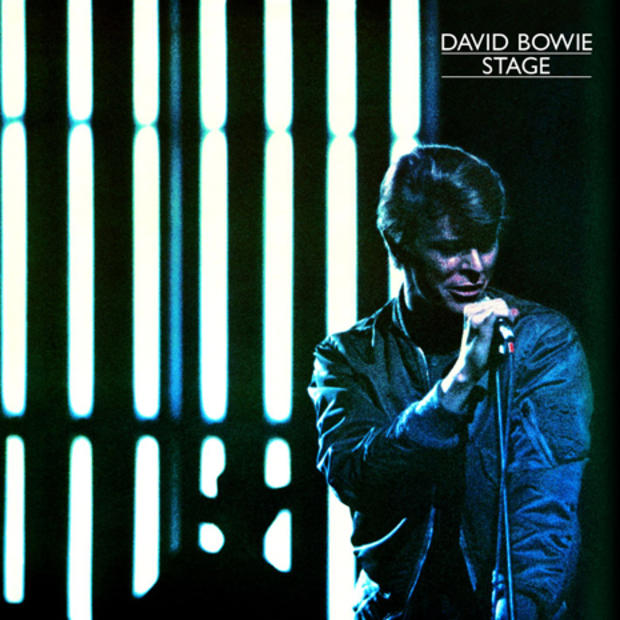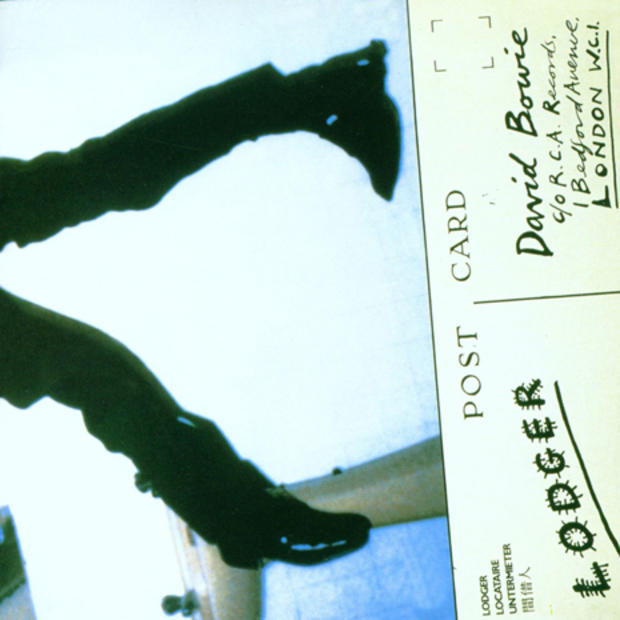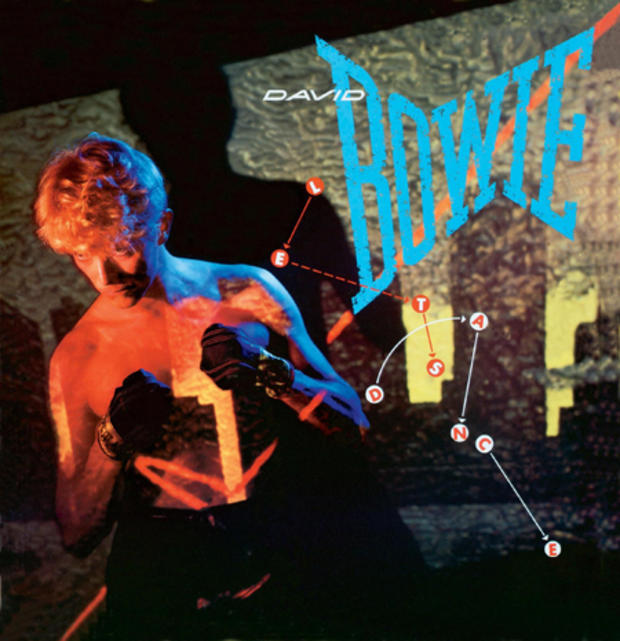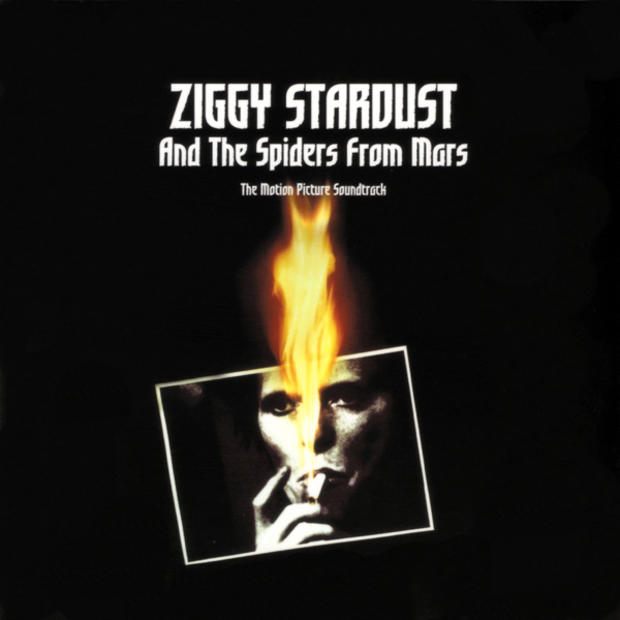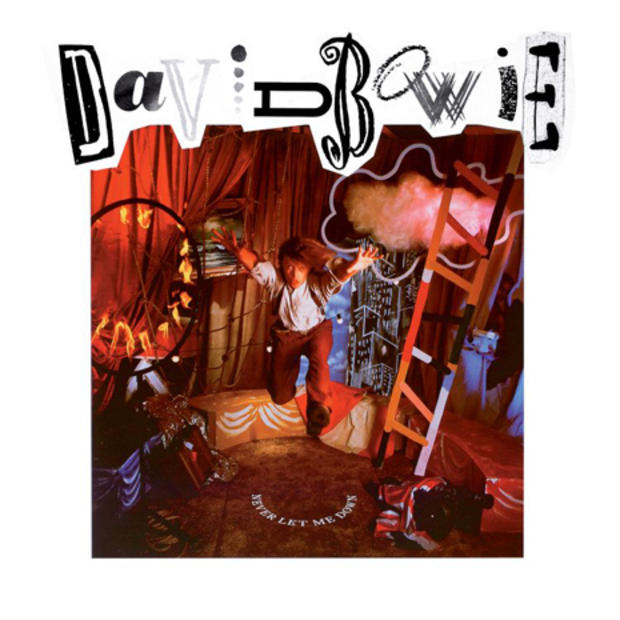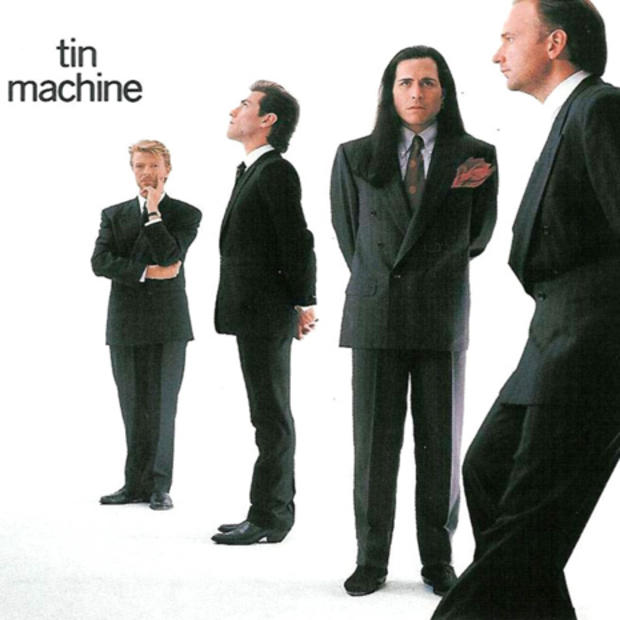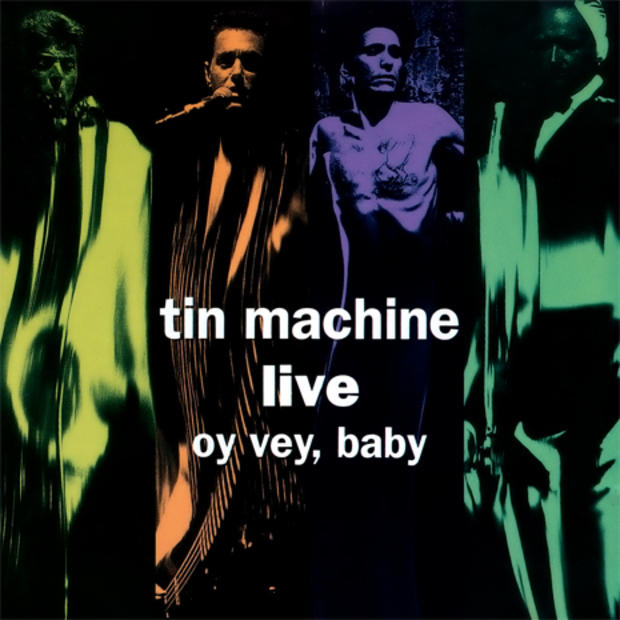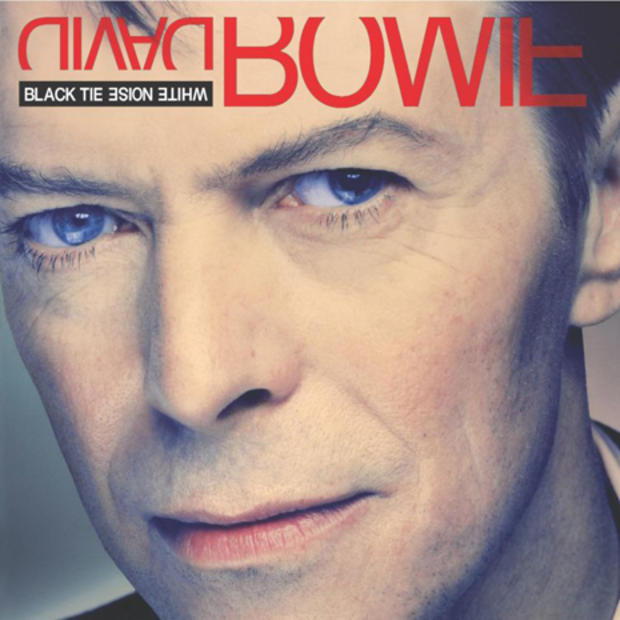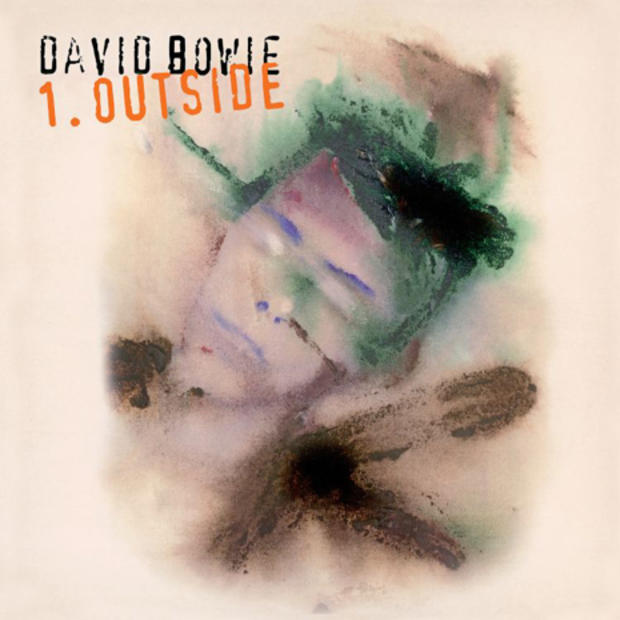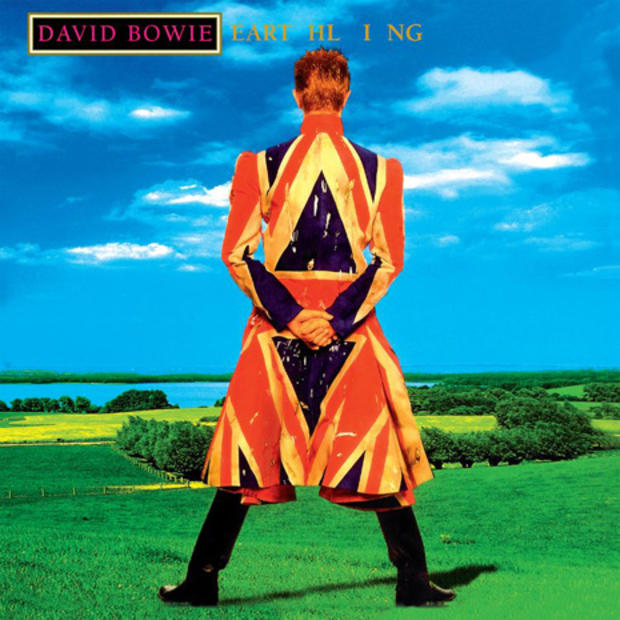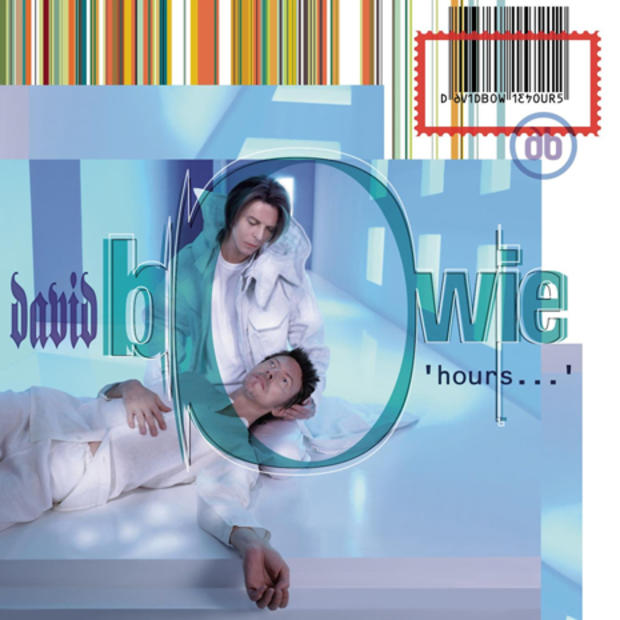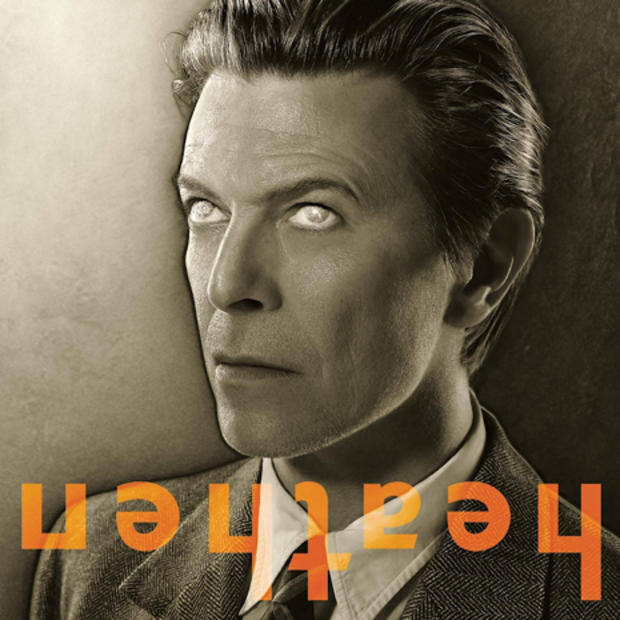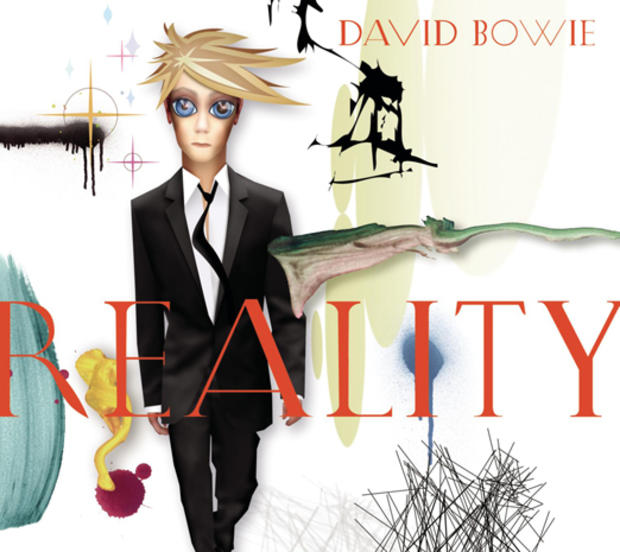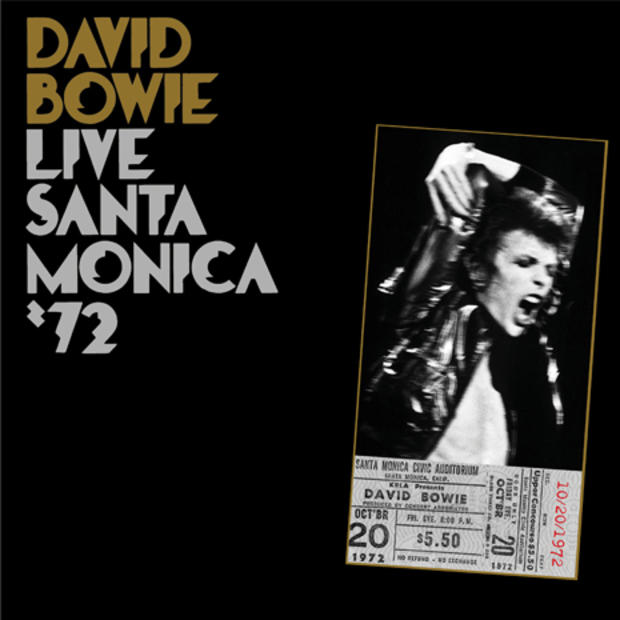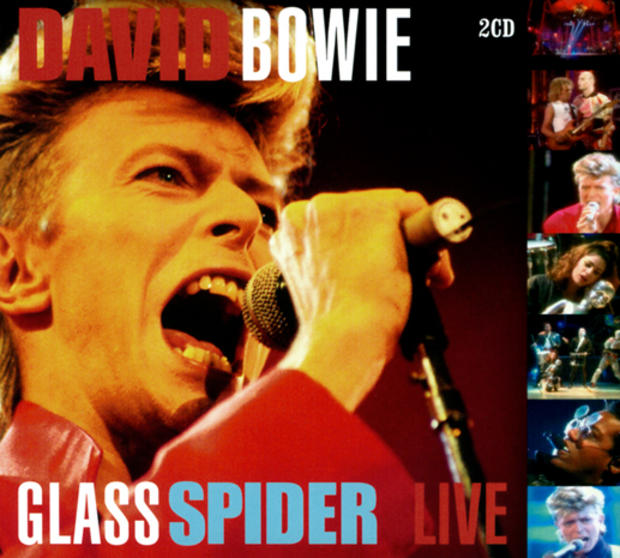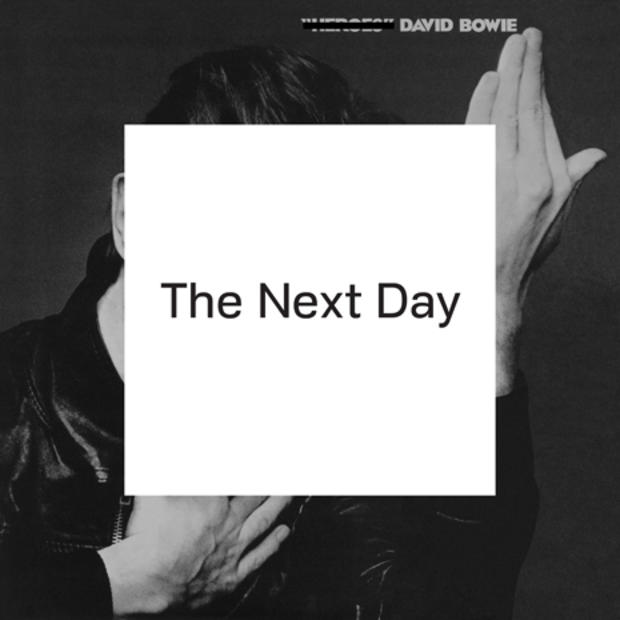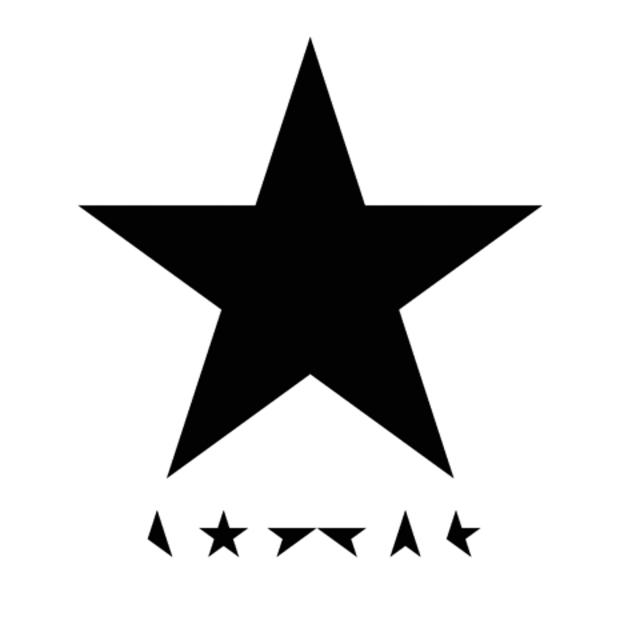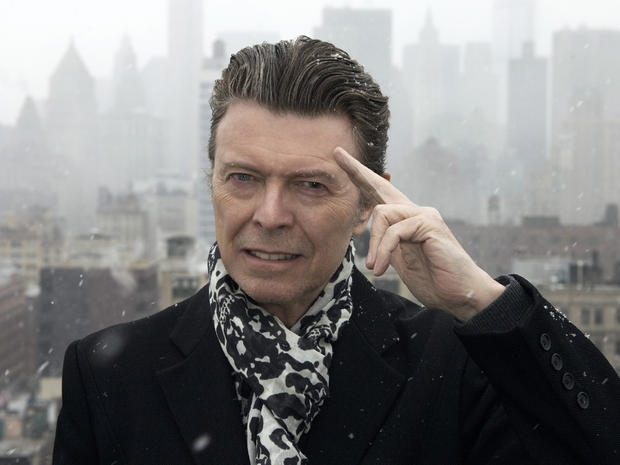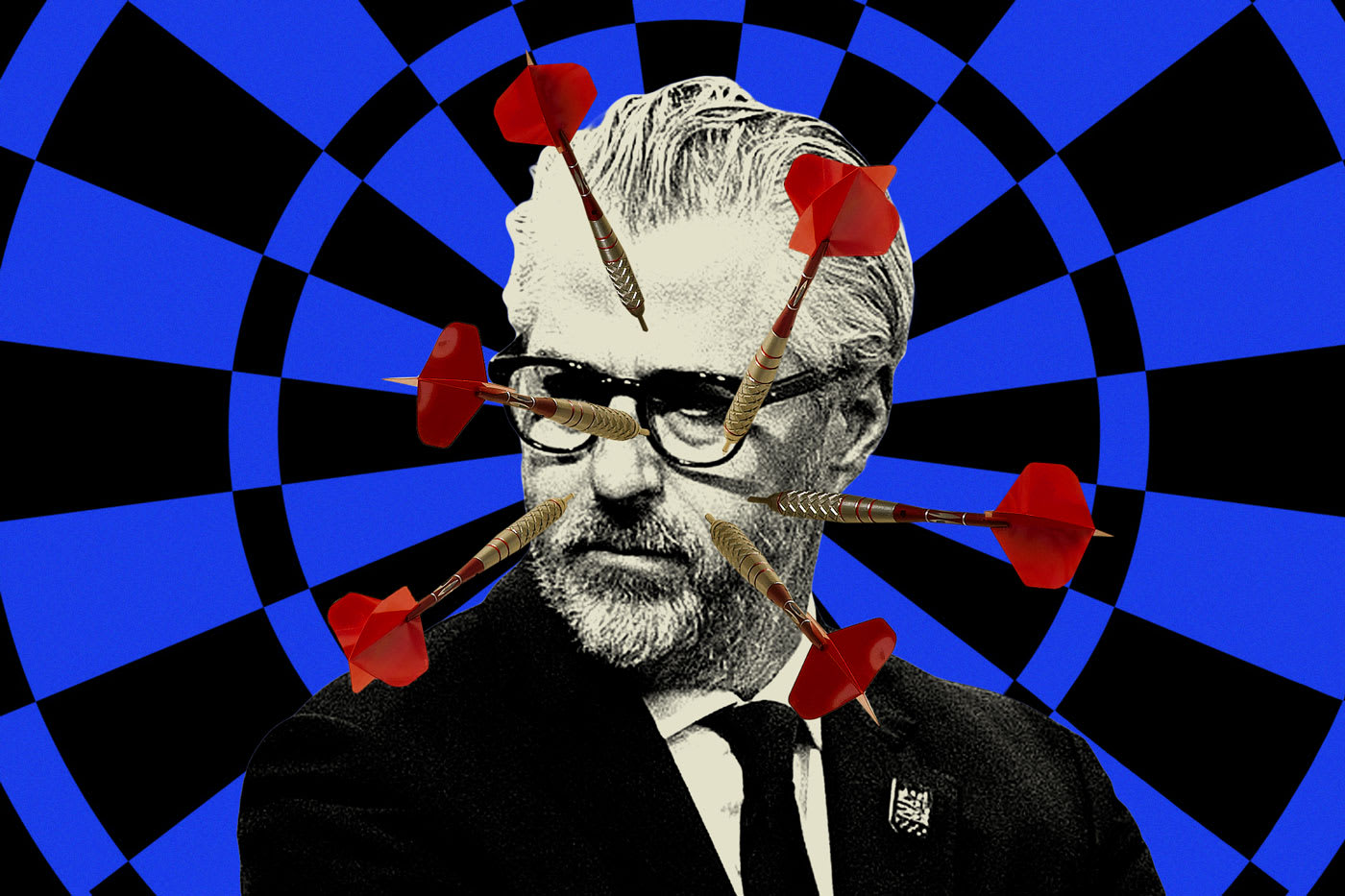A David Bowie discography
The incomparable and uncompromising David Bowie's prodigious output of music encompassed stylized permutations of rock, pop, ballads, electronic, soul, R&B and jazz, often presented with a highly theatrical flair.
Click through our gallery to explore his studio and live albums, from his 1967 debut to his final album, "Blackstar," released just two days before his death.
Pictured: David Bowie in 1971.
"David Bowie"
Bowie's eponymous debut album, released in 1967, came after several singles (some under his real name of Jones) were released beginning in 1964, when he was 17 years old. Those ranged from "Liza Jane" (by Davie Jones and the King Bees), on which Bowie played alto sax and sang, to the bizarre "Laughing Gnome."
The album's tracks include "Uncle Arthur," "Love You Till Tuesday," "We Are Hungry Men," "Little Bombadier," and "When I Live My Dream," "Please Mr. Gravedigger," and the odd, tuba-inflected "Rubber Band," which wears its British musical hall influences on its sleeve.
The album's release on the very same day as The Beatles' "Sgt. Pepper" didn't help its commercial chances, and Bowie was dropped by his label.
"Space Oddity"
Bowie's second studio album, from 1969, was "Space Oddity" (originally released in the U.S. as "Man of Words/Man of Music"), a blend of folk and progressive that featured one of Bowie's best-loved songs, "Space Oddity," which tells of the adventures of astronaut Major Tom.
Other tracks include "Cygnet Committee," "Wild Eyed Boy from Freecloud," "Unwashed and Somewhat Slightly Dazed," "Janine," "An Occasional Dream," "God Knows I'm Good," and "Memory of a Free Festival."
"The Man Who Sold the World"
Bowie continued his progression to a darker, harder-edged rock with "The Man Who Sold the World" (1970). In addition to the title track, songs included "The Width of a Circle," "All the Madmen," "Black Country Rock," "After All," "She Shook Me Cold," and "The Supermen."
"Hunky Dory"
Bowie's well-received 1971 album, "Hunky Dory," featured the songs "Changes," "Oh! You Pretty Things," "Life on Mars?," "Andy Warhol," "Quicksand," "Queen Bitch," "The Bewlay Brothers," and "Song for Bob Dylan," as well as the Biff Rose-Paul Williams song, "Fill Your Heart."
A modest hit initially, "Hunky Dory" reached #3 on the U.K. album charts following the success of "Ziggy Stardust," and in 2010 the album was selected by Time magazine among its "100 best albums of all time."
"Ziggy Stardust"
"The Rise and Fall of Ziggy Stardust and the Spiders from Mars" (1972) is a concept album starring Bowie's glam-rock alter ego, an alien bisexual. Songs include "Starman," "Five Years," "Soul Love," "Moonage Daydream," "Lady Stardust," "Star," "Hang On to Yourself," "Suffragette City and "Rock 'n' Roll Suicide." Also: Ron Davies' "It Ain't Easy."
"Aladdin Sane"
A follow-up to "Ziggy Stardust," "Aladdin Sane" (1973) melded rock with Brechtian avant-garde and jazz. Tracks include the R&B-infused "The Jean Genie," "Time," "Watch That Man" and "Drive-In Saturday." Bowie also covered the Rolling Stones' "Let's Spend the Night Together."
The album hit No. 1 on the U.K. chart.
"Pin Ups"
"Pin Ups" (1973) is an album of covers, including songs by The Yardbirds ("I Wish You Would," "Shapes of Things"), Pink Floyd ("See Emily Play") The Who ("I Can't Explain," "Anyway, Anyhow, Anywhere"), The Merseys (Sorrow"), and The Kinks ("Where Have All the Good Times Gone"), among others. It also topped the U.K. album chart.
"Diamond Dogs"
"Diamond Dogs" (1974) was a dystopian-futuristic concept album born out of Bowie's plans to stage an adaptation of George Orwell's "1984" (which were squashed by the author's estate). Tracks include "Future Legend," "Sweet Thing," "Rock 'n' Roll With Me," "1984," and "Big Brother."
"David Live"
David Bowie's first live album, "David Live" (1974), marks a crossover from his glam-rock persona to his more soul-influenced "Young Americans," released the following year. Recorded during a U.S. tour, it features material from "Diamond Dogs," "Aladdin Sane," and "Ziggy Stardust."
Songs include: "1984," "Changes," "Sweet Thing," "Cracked Actor," "Rock 'n' Roll With Me," "Knock on Wood," and "Big Brother."
"Young Americans"
David Bowie's soul-dripping "Young Americans" (he termed it "plastic soul") climbed to #9 on the U.S. chart, and #2 in the U.K.
The album boasts the rollicking title track, "Win," "Right," "Somebody Up There Likes Me," "Can You Hear Me?," and "Fame" (performed with John Lennon), which became his first #1 single in the U.S. The album also includes covers of The Beatles' "Across the Universe," and Luther Vandross' "Fascination."
"Station to Station"
Recorded following shooting of the film, "The Man Who Fell to Earth" (a still of which is featured on the jacket), "Station to Station" (1976), recorded in Los Angeles, features the Bowie character the Thin White Duke, and is influenced by the synthetic sounds of German electronica (such as Kraftwerk) and by Bowie's drug use.
In addition to the single "Golden Years," tracks included "Station to Station," "Word on a Wing," "TVC 15," "Stay" and "Wild Is the Wind."
The album rose to #5 on the U.K. album chart, and #3 in the U.S.
"Low"
"Low" (1977) marked Bowie's first collaboration with Brian Eno (and the first of his "Berlin trilogy"), and it produced an avant garde album born from what the singer described as "oodles of pain."
Tracks include "Speed of Life," "Breaking Glass," "What in the World," "Sound and Vision," "Warszawa," "Weeping Wall" and "Subterraneans."
"Low," which ranked #2 on the U.K. chart, is on many critics' lists of the best albums of the decade, and would later influence Philip Glass in composing his 1992 symphony, also titled "Low."
"Heroes"
One of Bowie's most critically-acclaimed works, "Heroes" (1977), the second of his "Berlin trilogy," was judged less melancholy than "Low." Tracks include "Beauty and the Beast," "Joe the Lion," "V-2 Schneider," and "Sense of Doubt," as well as four tracks co-written with Brian Eno: "Heroes, "Moss Garden," "Neukoln," and "The Secret Life of Arabia."
"Stage"
Recorded during his 1978 world tour, David Bowie's "Stage" features performances in Boston, Philadelphia, and Providence, R.I., with music from the albums, "Low," "Station to Station," "Heroes," and "Ziggy Stardust."
"Lodger"
Deemed less experimental than his first two collaborations with Brian Eno, "Lodger" (1979) was less successful commercially (it only reached #20 in the U.S.), though it has undergone a critical reevaluation.
Tracks include "Fantastic Voyage," "Move On," "DJ," "Repetition," "Look Back in Anger" and "Boys Keep Swinging."
"Scary Monsters (and Super Creeps)"
"Scary Monsters (and Super Creeps)" (1980) was Bowie's last recording for RCA, after the mixed commercial reception of his "Berlin trilogy," yet this would prove to be one of his more commercially and critically successful albums, hitting #1 in the U.K., and #12 in the U.S.
Tracks include "It's No Game (No. 1)," "Ashes to Ashes," "Fashion," "Teenage Wildlife," "Up the Hill Backwards," "Scream Like a Baby," and "Because You're Young" (featuring Pete Townshend of The Who). Guitarist Brian Fripp also returned after a break for touring.
"Let's Dance"
The title track of "Let's Dance" (1983) reached Number 1 in the U.K., U.S., and much of the rest of the world. The album was likewise a smash, featuring a number of pop hits, including "Modern Love," "Without You," Ricochet," "Criminal World," Shake It," and his version of Iggy Pop's "China Girl." The album also included "Putting Out Fire," Bowie's song from the horror film, "Cat People."
"Ziggy Stardust and the Spiders From Mars: The Motion Picture"
"Ziggy Stardust: The Motion Picture" (1983) was tied to the D. A. Pennebaker documentary of Bowie's July 3, 1973 "Ziggy Stardust" concert in London, at which he announced the end of Ziggy's appearances. The film was not formally released until 1979, but the album took even longer to achieve a sound mix acceptable to the singer.
"Tonight"
Following the "Serious Moonlight" tour, Bowie produced "Tonight" (1984), which carries the pop sounds of "Let's Dance" and marries them to more reggae inflections.
In addition to "Loving the Alien," "Blue Jean" "Tumble and Twirl," and "Dancing With the Big Boys," Bowie covered The Beach Boys' "God Only Knows," and Iggy Pop's "Neighborhood Threat," "Don't Look Down" and Tonight" (performed here with Tina Turner). Though it hit #1 in the U.K., Bowie later claimed the album was a lesser effort.
"Never Let Me Down"
Bowie said his 1987 album, "Never Let Me Down," was more of a rock album than his previous few releases. Tracks included "Day-In-Day-Out," "Time Will Crawl," "Beat of Your Drum," "Glass Spider," "Shining Star (Makin' My Love," "New York's in Love," "87 and Cry," "Too Dizzy," "Bang Bang," and the title track.
"Tin Machine"
In 1989, feeling he had lost his way creatively, Bowie formed a new group, Tin Machine, featuring guitarist Reeves Gabrels, drummer Hunt Sales and bassist Tony Sales. Their two albums and tour would sell two million records, but its primary success was to goad Bowie to be less theatrical and take more risks musically.
Their first album, "Tin Machine," featured the tracks "Heaven's in Here," "Prisoner of Love," "Crack City," "I Can't Read," "Under the God," "and John Lennon's "Working Class Hero."
The cover of their second album, "Tin Machine II" (1991), featured classical statues with prominently-displayed penises (or did, until the record company airbrushes came out).
"Tin Machine Live: Oy Vey, Baby"
"Tin Machine" disbanded after the release of a live album in 1992, "Tin Machine Live: Oy Vey, Baby," and Bowie resumed his solo career.
"Black Tie White Noise"
Bowie's first solo album in the '90s was "Black Tie White Noise" (1993), which debuted at #1 in the U.K.
Tracks included "The Wedding" (Bowie had recently married the model Iman), "Miracle Goodnight," "Jump They Say," "I Know It's Gonan Happen Someday," and a cover of Cream's "I Feel Free."
"Outside"
A gothic-tinged concept album about the end of the 20th century, "Outside" (1995) marked Bowie's reconnection with Brian Eno, and unlike previous albums was largely improvised during recording. Bowie toured (along with Nine Inch Nails) in support of the album, but it was less successful on the charts.
Tracks include "Hallo Spaceboy," "I'm Deranged" (memorably used in the David Lynch film, "Lost Highway"), "The Hearts Filthy Lesson" (simiarly appropriated for David Fincher's "Seven"), and "Strangers When We Meet."
"Earthling"
The industrial-sounding "Earthling" (1997), though not a huge commercial hit, was critically praised and earned two Grammy Award nominations, for Best Alternative Music Performance and Best Male Rock Vocal Performance (the song "Dead Man Walking"). Tracks included "Little Wonder," "Telling Lies," "Seven Years in Tibet," "Looking for Satellites," "I'm Afraid of Americans," and "Law (Earthlings on Fire)."
"Hours"
The first major artist album available for download via the Internet prior to release, "Hours..." (1999) reached #5 on the U.K. charts but failed to crack the Top 40 in the U.S.
Tracks included "Thursday's Child," "Something in the Air," "If I'm Dreaming My Life," "Seven," "What's Really Happening?" and "The Pretty Things Are Going to Hell."
"Heathen"
The well-reviewed "Heathen" (2002) was a great commercial success as well. Though the songs had been composed prior to the September 11 terror attacks, according to Bowie, the album's general tone was heavily influence by post-9/11 America.
Tracks include "Sunday," "Slow Burn," "Afraid," "I Would Be Your Slave," "Everyone Says 'Hi'," and "A Better Future." Covers include The Pixies' "Cactus" by Pixies, Neil Young's "I've Been Waiting for You," and the Legendary Stardust Cowboy's "I Took a Trip on a Gemini Spaceship."
"Reality"
"Reality" (2003) features the songs "New Killer Star," "The Loneliest Guy," "Looking for Water," "Days," "Fall Dog Bombs the Moon," Reality," and "Bring Me the Disco King." Covers include The Modern Lovers' "Pablo Picasso," and George Harrison's "Try Some, Buy Some."
"Live Santa Monica '72"
"Live Santa Monica '72" (2008) was the official release of a bootleg recording of a Ziggy Stardust concert from 1972 which had circulated for years as the album "Santa Monica '72."
"Glass Spider Live"
"Glass Spider Live" (2008) is a live double-CD album of performances from Bowie's 1987 tour in Sydney, which had previously been released on video, as well as recordings from the same tour in Montreal.
"VH1 Storytellers"
"VH1 Storytellers" (2009) features performances by Bowie from a 1999 VH1 special, which includes songs from throughout his career, including "Life on Mars?," "Rebel Rebel," "Thursday's Child," "Can't Help Thinking About Me," "China Girl," "Seven," "Drive-In Saturday" and "Word on a Wing."
"A Reality Tour"
"A Reality Tour" (2010) features songs from Bowie's 2003 tour, recorded in Dublin, which range from his 1970 album "The Man Who Sold the World," to "Reality."
"The Next Day"
Bowie's first studio album in ten years, recorded in secret, "The Next Day" (2013) was released on the supposedly-retired singer's 66th birthday. Critically praised (The New York Times called it Bowie's "twilight masterpiece"), it was an international #1 hit, and was Grammy-nominated for Best Rock Album.
Tracks include "Dirty Boys," "The Stars (Are Out Tonight)," "Love Is Lost," "Where Are We Now?," Dancing Out in Space," and "You Feel So Lonely You Could Die."
"Blackstar"
Bowie's final album, "Blackstar," was released on January 8, 2016, his 69th birthday. Highly experimental in form, the album was described by longtime Bowie producer Tony Visconti as the singer's "parting gift" to his fans. More than one critic noted the powerful work's mood as "darkened by bitter awareness of mortality" (as the New York Times Jon Pareles put it). Sadly, two days after the record was released, Bowie died, following a long bout with cancer.
Tracks include "Blackstar," "Lazarus" (composed for an off-Broadway production of the same name, a quasi-sequel to "The Man Who Fell to Earth"), "'Tis a Pity She's a Whore," "Sue (or in a Season of Crime)," "Girl Loves Me," "Dollar Days," and "I Can't Give Everything Away."
Fare Thee Well
For more on David Bowie:
Bill Flanagan: The artistry of David Bowie
Gallery: David Bowie 1947-2016
David Bowie: 10 moments that defined his career
Remembering David Bowie ("CBS This Morning")
David Bowie's unaired "60 Minutes" interviews
Performance of David Bowie's "Lazarus" musical becomes a memorial
Astronauts honor "Starman" David Bowie from space
By CBSNews.com senior producer David Morgan
